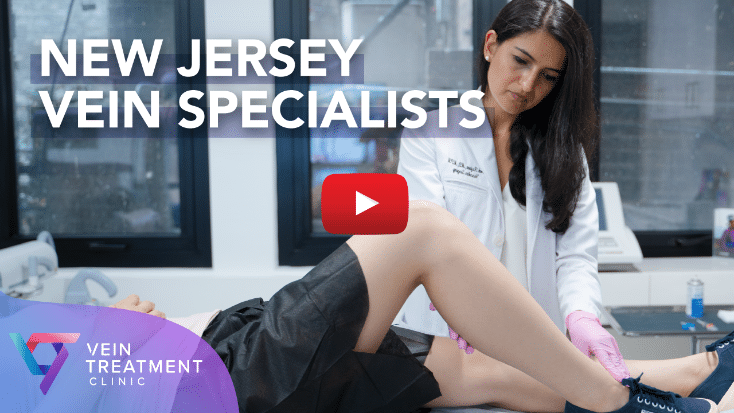Varicose veins are a common medical condition that affects millions of people worldwide. While some individuals may simply find the appearance of varicose veins bothersome, others experience discomfort, pain, or more serious complications. Seeking proper treatment from the right medical professional is essential in managing varicose veins effectively. So, what kind of doctor treats varicose veins at a vein treatment clinic? Let’s explore this question in detail.
Understanding Varicose Veins
Varicose veins are enlarged, twisted veins that usually appear in the legs and feet. They occur when the valves within the veins malfunction, leading to blood pooling and the veins becoming distended. This condition may cause symptoms ranging from mild aches to severe pain and swelling. In some cases, varicose veins can result in ulcers, skin changes, and even blood clots if left untreated.
While the condition is more common in older adults, varicose veins can affect individuals of all ages, particularly those with risk factors such as obesity, pregnancy, a family history of the condition, or a sedentary lifestyle.
What Kind of Doctor Treats Varicose Veins?
When seeking treatment for varicose veins, it’s important to consult the right type of healthcare provider to ensure proper care. There are several types of doctors who specialize in the diagnosis and treatment of varicose veins, and one of the most common places to find these specialists is at a vein treatment clinic.
Vascular Surgeon
A vascular surgeon is a highly trained doctor who specializes in the treatment of veins and blood vessels. Vascular surgeons are experts in diagnosing and managing conditions related to the circulatory system, including varicose veins. These doctors often perform surgeries or minimally invasive procedures to address varicose veins, depending on the severity of the condition.
Vascular surgeons are qualified to carry out more complex treatments, such as vein stripping, ligation, and other surgical interventions. They also perform less invasive options, such as sclerotherapy, laser therapy, and endovenous laser treatments (EVLT), which are effective in treating varicose veins with minimal downtime.
Patients with severe cases of varicose veins or those at risk of complications are typically referred to a vascular surgeon, who will create a personalized treatment plan to suit the individual’s needs.
Phlebologist
A phlebologist is a specialist in the field of venous disorders, including varicose veins. Phlebologists focus on diagnosing and treating conditions related to the veins, particularly those affecting the legs. They are experts in non-surgical treatments for varicose veins and other venous conditions.
Phlebologists often work in vein treatment clinics and provide services like sclerotherapy (injection of a solution that causes the vein to collapse), laser therapy, and radiofrequency ablation. These minimally invasive treatments are usually performed in an office setting and offer quicker recovery times compared to traditional surgery.
Patients seeking non-surgical solutions or those with less severe varicose veins may consult a phlebologist. This type of specialist can often provide effective treatments without the need for extensive recovery periods.
Interventional Radiologist
An interventional radiologist is a medical professional who specializes in using imaging techniques, such as ultrasound, to guide minimally invasive procedures. Interventional radiologists are often involved in the treatment of varicose veins through techniques like endovenous laser therapy (EVLT) and sclerotherapy.
These doctors use advanced technology to perform procedures that treat varicose veins without the need for large incisions or extended recovery times. Because interventional radiologists specialize in minimally invasive treatments, they often work in vein treatment clinics, offering a range of non-surgical options for patients.
Patients who prefer less invasive treatments or those with certain medical conditions that make surgery more risky may find interventional radiologists to be an excellent option for varicose vein treatment.
What Can You Expect at a Vein Treatment Clinic?
A vein treatment clinic is a specialized medical facility where patients with venous conditions, including varicose veins, can receive comprehensive care. These clinics are staffed by a range of healthcare professionals, including vascular surgeons, phlebologists, and interventional radiologists, all of whom collaborate to offer a variety of treatment options tailored to the patient’s needs.
At a vein treatment clinic, patients typically undergo an initial consultation and diagnostic assessment. During this visit, the doctor will evaluate the patient’s medical history, perform a physical examination, and may use ultrasound or other imaging techniques to assess the severity of the varicose veins.
Once the diagnosis is made, the doctor will recommend an appropriate treatment plan, which could include:
- Sclerotherapy: A treatment where a solution is injected into the affected veins to make them collapse and disappear over time.
- Laser Therapy: Uses focused laser energy to seal off the problem vein.
- Endovenous Laser Therapy (EVLT): A minimally invasive procedure that uses laser energy to treat varicose veins from within.
- Radiofrequency Ablation (RFA): A procedure that uses radiofrequency energy to close off the affected vein.
- Surgical Procedures: In severe cases, vein stripping or ligation surgery may be necessary to remove or tie off the varicose veins.
In addition to these treatments, vein treatment clinics often provide follow-up care and recommendations to help prevent future venous issues. This may include lifestyle modifications, compression stockings, or physical therapy.
Why Choose a Vein Treatment Clinic?
Vein treatment clinic offer a number of advantages for individuals seeking care for varicose veins. Here are some of the key reasons why patients choose these specialized clinics:
- Expert Care: These clinics are staffed by doctors who are highly experienced in the diagnosis and treatment of varicose veins. Whether you see a vascular surgeon, phlebologist, or interventional radiologist, you can trust that you are receiving expert care tailored to your condition.
- Minimally Invasive Options: Many vein treatment clinics focus on offering minimally invasive treatments, which means faster recovery times, less pain, and a reduced risk of complications compared to traditional surgery.
- Personalized Treatment Plans: Doctors at vein treatment clinics take the time to assess your specific condition and recommend a treatment plan that is best suited to your individual needs.
- Convenience: Vein treatment clinics often provide all the necessary services in one location, including consultations, diagnostic tests, treatments, and follow-up care.
- State-of-the-Art Technology: Many vein treatment clinics are equipped with the latest technology to ensure the most effective and precise treatments for varicose veins.
Conclusion
Varicose veins are a common condition that can cause a range of symptoms, from cosmetic concerns to significant discomfort. When seeking treatment for varicose veins, it’s important to consult with the right kind of doctor. Vascular surgeons, phlebologists, and interventional radiologists are all qualified to treat varicose veins, and many work at specialized vein treatment clinics.
Whether you are looking for surgical options or minimally invasive procedures, a vein treatment clinic offers a wide range of treatments to help you manage varicose veins effectively. By consulting with a specialist and receiving personalized care, you can improve your quality of life and avoid complications related to varicose veins.



